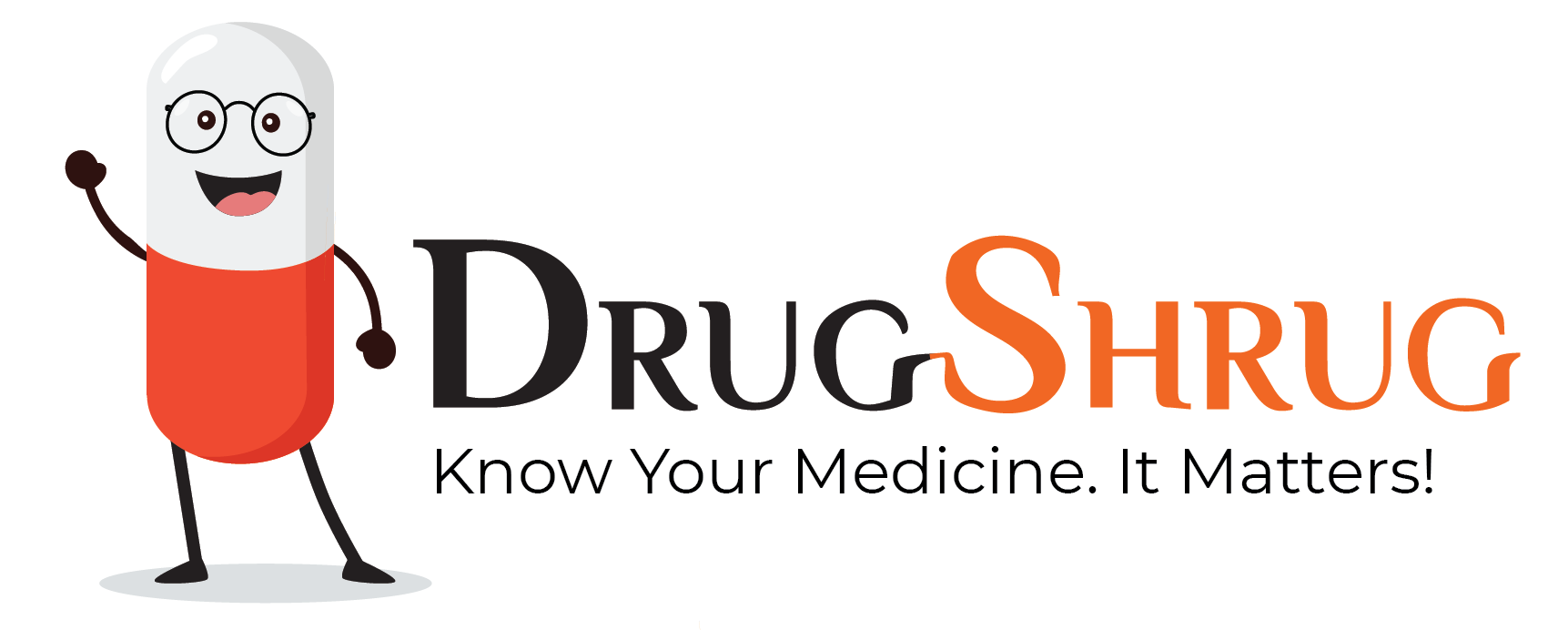What is Ecallantide?
Ecallantide is prescribed to alleviate attacks of hereditary angioedema which is a disorder related to the immune system. This medication although, is recommended to individuals at least 16 years old. However, Ecallantide does not cure hereditary angioedema. It may also be utilized for purposes not mentioned in this concise clinical guide.
What are the common conditions in which Ecallantide prescribed?
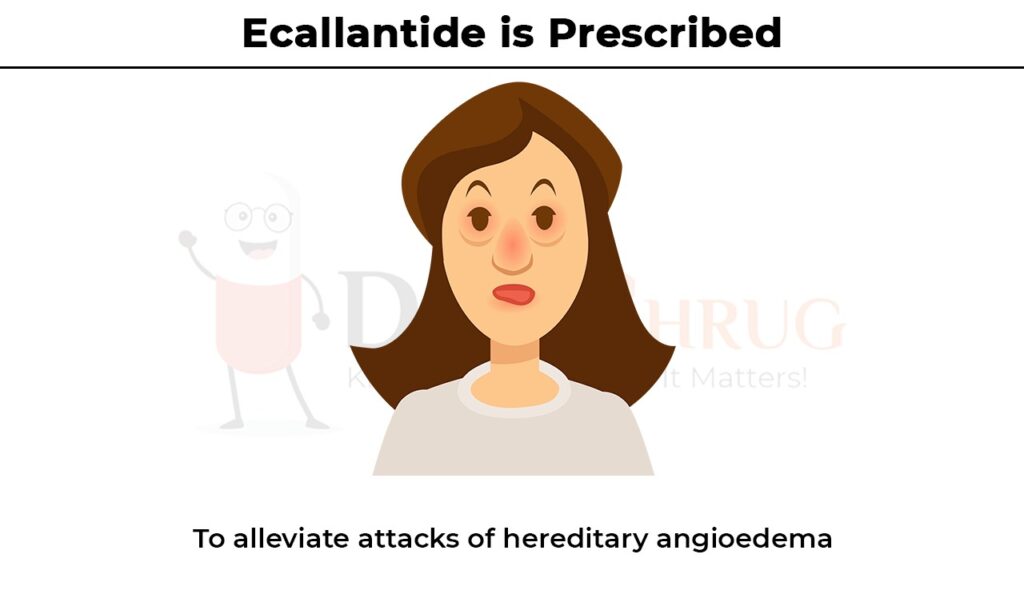
It is primarily administered to treat episodes of hereditary angioedema.
How should I take Ecallantide?
- Ecallantide is directly administered as an infusion beneath the skin. Your medical practitioner shall provide the injection.
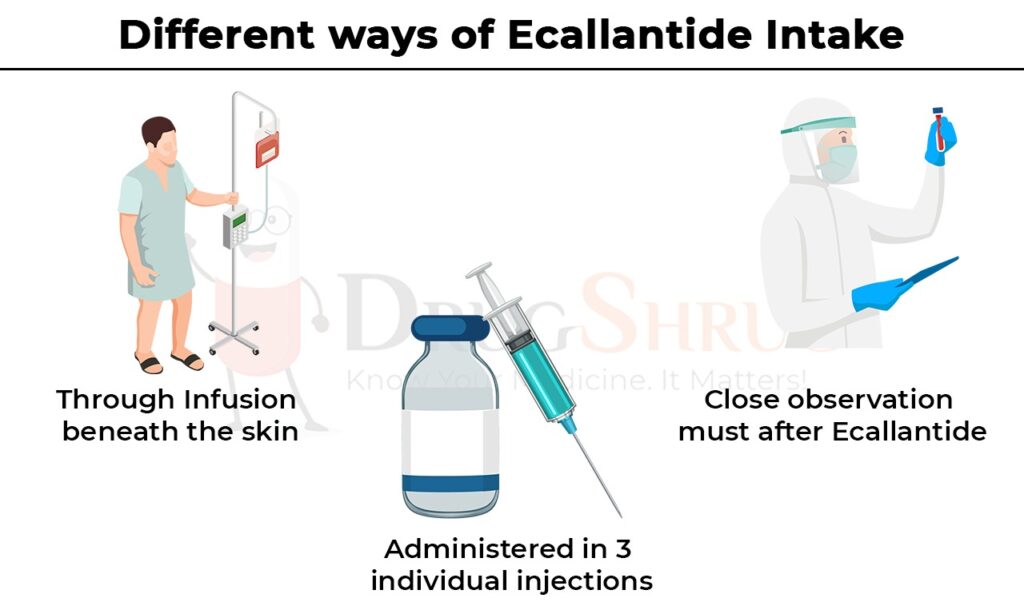
- After getting ecallantide, you will be kept in close observation. This is to ensure the safety of the medicine and to detect any allergic responses that may ensue after its intake.
- Ecallantide is generally administered in 3 individual injections. If the symptoms of angioedema attack persist, you may receive more injections in a day.
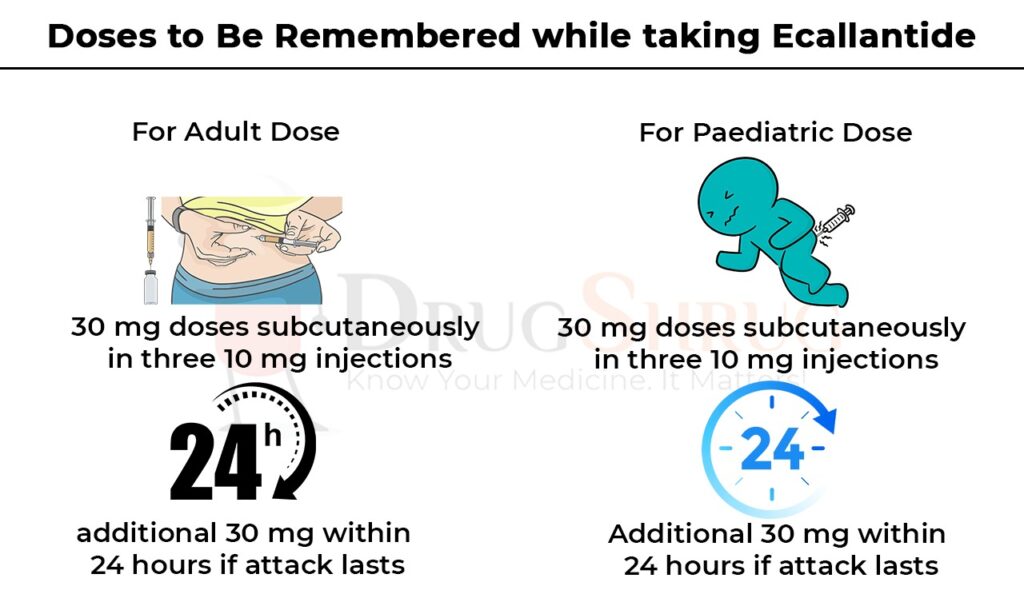
Typical Adult Dose for Hereditary Angioedema
Adults are given 30 mg doses subcutaneously in three 10 mg injections. This may be with an additional 30 mg within 24 hours if attack lasts.
Typical Paediatric Dose for Hereditary Angioedema
For children 12 years and older 30 mg doses are given subcutaneously in three 10 mg injections. This may repeat in a further 30 mg within 24 hours if attack lasts.
When you should not take Ecallantide?
- Do not receive ecallantide if you are allergic to it.

- Before getting it’s dose, inform your doctor about any type of allergy that you had.
- It is yet undiscovered if this medicine will affect an unborn infant. Apprise your doctor if you are pregnant or plan to become pregnant.
- It is unfound whether ecallantide passes into breast milk or if it could harm a baby being suckled. Acquaint your doctor if you are breast-feeding a baby.
- In an urgency, it may not be viable to inform your doctor if you are pregnant or lactating. Ensure that the doctor caring for your pregnancy or your baby is aware that you have received this injection.
- Avoid ecallantide if you are allergic to it. Apprise your doctor if you ever had any type of allergy.
- In an urgency, it may not be viable to inform your doctor about your current health conditions. Ensure that any doctor looking after you is aware that you have received this injection.
Adhere to your doctor’s directions about any limitations on food, beverages, or activity.
What are the possible side effects of Ecallantide?
If you experience the following signs of allergic within 1 hour receiving the medicine, inform your doctor.
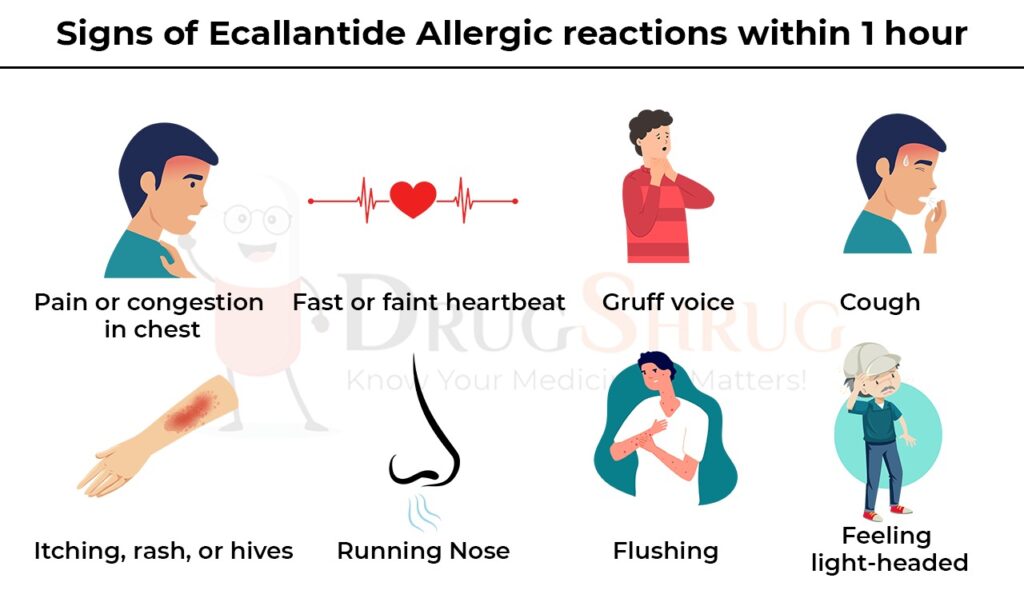
- pain or congestion in chest, fast or faint heartbeat;
- breathlessness, cough, throat irritation,
- gruff voice, tight feeling in your throat, trouble swallowing;
- swelling of your lips, tongue, or throat;
- inflammation or redness in face;
- itching, rash, or hives
- flushing (warmth, redness, or tingling sensation);
- sneezing, runny or stuffy nose; or
- feeling light- headed,
Any sensitivity to ecallantide can lead to symptoms that are comparable to the signs of hereditary angioedema. However, you shall be closely watched by your doctor to ensure that allergy does not occur due to ecallantide.
Common side effects may comprise

- Nausea and diarrhoea
- headache
- fever;
- stuffy nose, sore throat;
- skin reactions where the medicine was injected (redness, rash, itching, bruising, swelling)
These are not all possible side effects as others may occur as well. Talk to your doctor for further information about side effects.
What to do if I miss the dose?
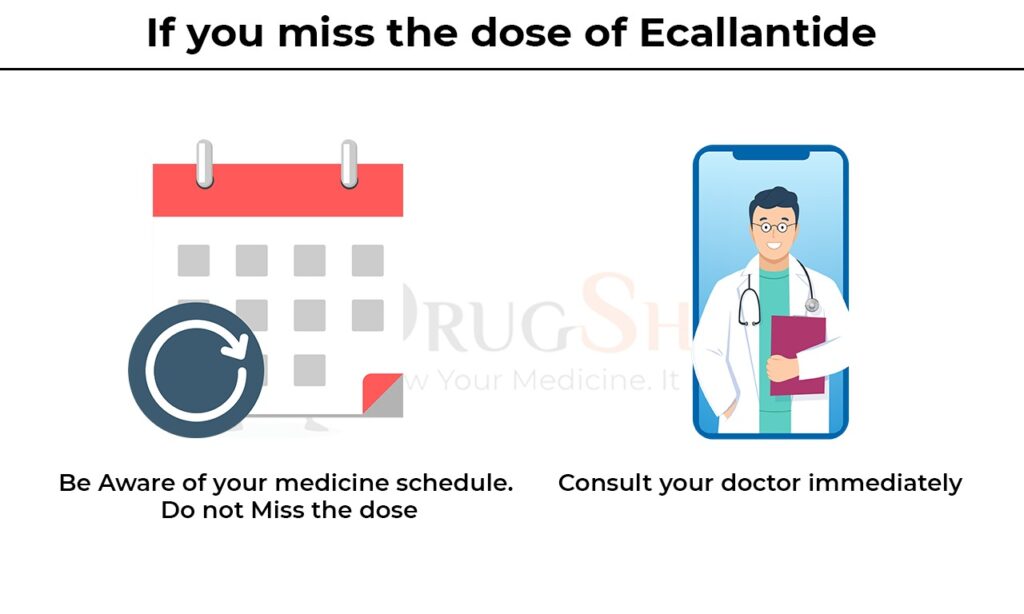
Since Ecallantide will be administered in a medical setting, it is probable that you shall not miss a dose.
Common Drug Interaction with Ecallantide.
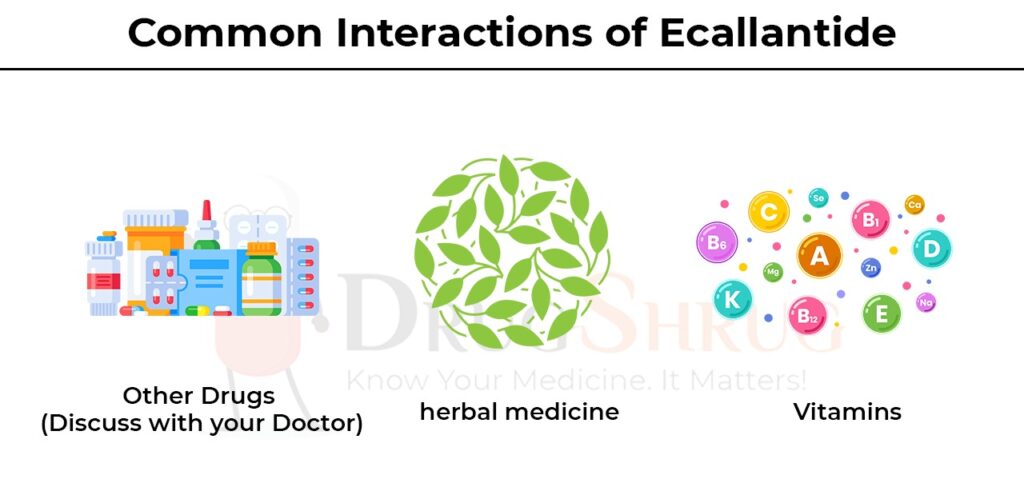
Inform your medics about all medicines you take, together with prescription and over-the-counter drugs, vitamins, and herbal supplements as they may interact with ecallantide.
Bottom Line
Ecallantide is a medication used to palliate the attacks of hereditary angioedema. This drug is injected directly into the subcutaneous tissue of a person. Follow the directions of your doctor closely while receiving the injection. If you observe any side- effects visit your doctor.
Further Reading:
